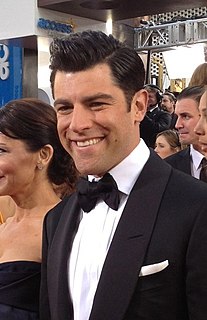A Quote by Ursula K. Le Guin
I don't believe that a writer 'gets' (takes into the head) an 'idea' (some sort of mental object) 'from' somewhere, and then turns it into words, and writes them on paper. At least in my experience, it doesn't work that way. The stuff has to be transformed into oneself, it has to be composted, before it can grow into a story.
Related Quotes
On a more technical level, a story takes a lot of words. And to generate words and phrases and images and so on, that will compel the reader to continue reading - that stand a chance of really grabbing a reader - the writer has to work out of a place of, let's say, familiarity and affection. The matrix of the story has to be made out of stuff the writer really knows about and likes. The writer can't be stretching and (purely) inventing all the time. Well, I can't, anyway.
I always give my students exercises where they really have to open a vein and bleed all over the paper and that's the way you get the important characters. Sooner or later every writer worth reading writes a story his mother wouldn't read and having to get that stuff out is part of one's growth as a writer.
As every writer knows... there is something mysterious about the writer's ability, on any given day, to write. When the juices are flowing, or the writer is 'hot', an invisible wall seems to fall away, and the writer moves easily and surely from one kind of reality to another... Every writer has experienced at least moments of this strange, magical state. Reading student fiction one can spot at once where the power turns on and where it turns off, where the writer writes from 'inspiration' or deep, flowing vision, and where he had to struggle along on mere intellect.
"Real" drawing is about specifics. It's about describing an object as accurately as possible. In a comic strip you have to draw a picture of the idea of the object. You have to draw the word that you are picturing, then you have to mix in specifics with it for it to work as a story. But you are still working with drawn words.
The dream, I think, with any project is it starts with an idea, and then somebody writes it, and the writer hopes that a director comes on and makes this piece of material visual, and both the director and writer hope that they can have actors come in and bring something to it that neither one of them expected, elevating it along the way.
In a sense my whole life as a writer is trying to find structural ways, or formal ways, to permit that outflowing so it doesn't just look like crazy output. In other words, if it turns out that you can do a given voice, that's just kind of inclination. But then if you can find a way to put that voice in a story so that the voice serves a purpose, then I would say that's being a writer.
It's the form it takes when it comes out the other side, of course, that gives a story something unique--its life. The story, in the way it has arrived at what it is on the page, has been something learned, by dint of the story's challenge and the work that rises to meet it--a process as uncharted for the writer as if it had never been attempted before.
I think before Twitter people didn't think that way, not in any sort of meaningful or specific way, so what I'm trying to say, if we're trying a bunch of stuff, a lot of cool and great social stuff, a lot of platform stuff, then some of it will stick, and some of it will be junked over. Some of it will be just like the cell phone, you can't imagine not having it.
There's no limit to what you can dream. You expect the unexpected, you believe in magic, in fairy tales, and in possibilities. Then you grow older and that innocence is shattered and somewhere along the way the reality of life gets in the way and you're hit by the realization that you can't be all you wanted to be, you just might have to settle for a little bit less.





































